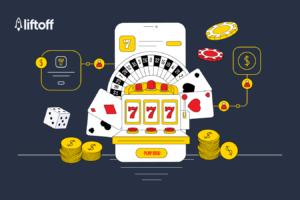New UK study finds 79% of online gaming revenue comes from 10% of accounts

The NatGen Patterns of Play study for GambleAware found that online slots revenue was especially concentrated in high-staking accounts.
UK.- GambleAware has published the results of a report that suggests 79 per cent of online gaming operator’s revenue comes from the highest-staking 10 per cent of customer accounts. The Patterns of Play study also found that slot, casino and bingo revenue was disproportionately concentrated in deprived areas.
Conducted by researchers from NatCen with professors David Forrest and Ian McHale of the University of Liverpool, the study took data provided by seven major operators from 139,152 accounts between July 2018 and June 2019. The data included the date, time and stakes of all bets and split gaming into 15-minute blocks.
It found that in the cases of both online betting and gaming, operators’ revenue was concentrated among a relatively small proportion of accounts, with 10 per cent of gamblers that staked the most (£4,568 and above) accounting for 79 per cent of revenue.
In sports betting, the top one per cent of customers by stakes (customers who wagered £30,493 and above) generated 36.4 per cent of operators’ annual revenue. The top 36.4 per cent (wagering £5,639 and above) generated 79.1 per cent, although the report also found that the “top” bettors lost a lower fraction of their stakes.
The study estimated that the operators analysed had more than 290,000 accounts with betting losses of more than £2,000. Some 21.9 per cent of those customers lived in the 20 per cent most deprived areas of Britain.
In online gaming, the top 20 per cent of customers by stakes generated more than 90 per cent of operator revenue. 3.2 per cent of customers lost more than £2,000 in a year and 1.2 per cent lost more than £5,000. The report said the concentration was even higher on online table games. Online bingo was found to have the most balanced spend.
Safer gambling recommendations
The report recommends that future safer gambling campaigns give more weight to the risks of online casino and slots (as opposed to focusing on betting on football like recent campaigns). It also suggested operators consider lower thresholds for customer interaction even if that results in flagging more “false positives.” It suggested particularly close monitoring was needed for players who participate in both betting and gaming.
Forrest, a professor of economics at the University of Liverpool, said: “This study offers us a globally unprecedented opportunity to understand the online gambling landscape,.
“In contrast to betting, we see that participation and customer losses in gaming were concentrated in more deprived areas and a higher proportion of customers had losses in the thousands of pounds over the year.
“While political debate and campaigns have focussed on the risks around betting, our research shows it is important to raise awareness of the gambling harms associated with online gaming. Gaming, in particular slots games, is much larger in terms of total online spending by British players and analysis of customer account data throws up more red flags indicative of potential harm from gambling.”
GambleAware CEO Zoë Osmond said: “This research adds to the growing body of evidence showing that harms from gambling are falling disproportionately on the most deprived communities. The current cost of living crisis along with the economic fallout of the pandemic can only exacerbate this further – which underscores the need for concerted system-wide action to prevent gambling harms.
“We welcome the findings and recommendations for future public health campaigns, as we work to break down the barriers that those suffering from gambling harm face when accessing treatment and support.”
GambleAware launches Lived Experience Council
GambleAware has launched a call for applicants to join its new Lived Experience Council. The scheme aims to help tackle gambling harm by appointing ambassadors with real lived experience.
The council will comprise members who have experienced the impact of gambling harm either directly or indirectly through family or friends. The members will use their personal insight to advise GambleAware and its board of trustees on everyday operations.
GambleAware has been a very vocal proponent of calls for a mandatory levy on gaming operators to fund gambling harm treatment and prevention. The NHS cut its ties with the charity because of a perceived lack of independence due to the fact that GambleAware currently depends on voluntary donations.
However, the Betting and Gaming Council has lobbied hard against such a levy, and according to The Sunday Times, the measure will be left out of the UK government’s gambling white paper.











